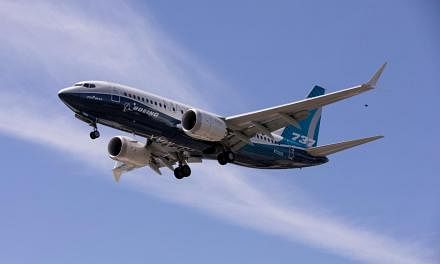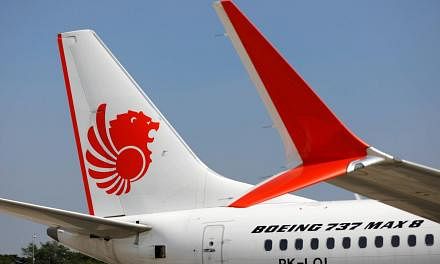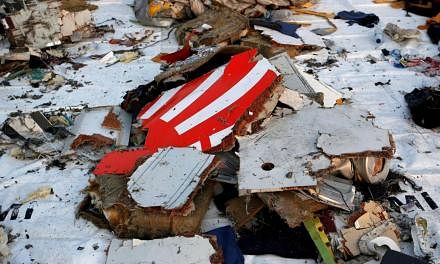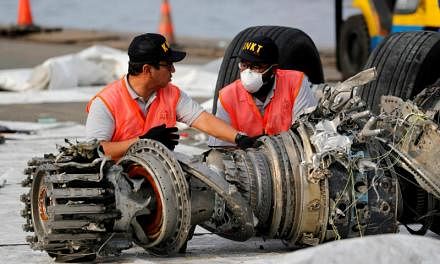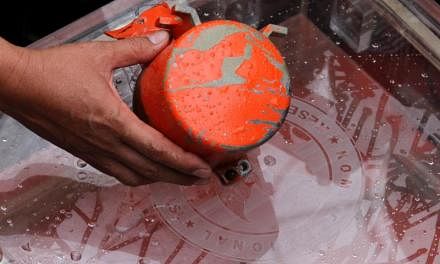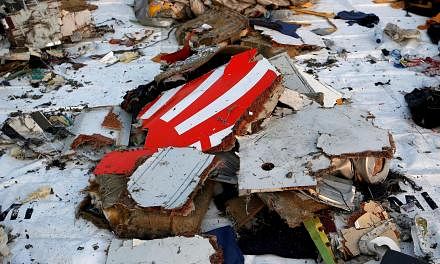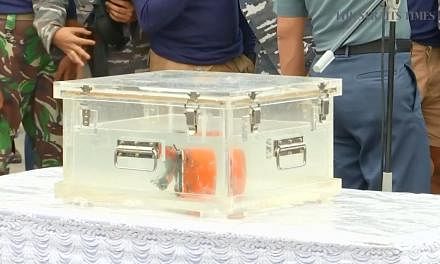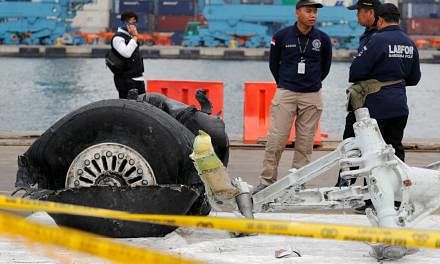JAKARTA • A preliminary report on what caused the crash of Lion Air Flight 610 will be released tomorrow. But even as the mystery is still being pieced together, one thing is clear, investigators and aviation experts say: Few airlines were less prepared to deal with crisis than Lion Air.
Interviews with dozens of Lion Air's management personnel and flight and ground crew members, as well as Indonesian investigators and airline analysts, paint a picture of a carrier so obsessed with growth that it has failed to build a proper safety culture.
The notorious safety record of Lion Air, Indonesia's largest carrier, is back in the spotlight after Flight 610 crashed minutes after take-off on Oct 29, killing all 189 people on board.
Investigators are trying to figure out what deadly alchemy of factors caused a new Boeing jet to plunge into the water at more than 640kmh.
They are examining whether Boeing failed to adequately explain modifications to the plane, a new 737 Max 8 model; how Lion Air handled repeated failures with the plane's data readings for days before the crash; and whether pilot training or confusion may have come into play in a case where only seconds may have been available to save the plane and its occupants.
Lion Air did not respond to repeated requests for comment regarding specific instances in which former employees and government investigators said the company had breached safety standards.
Mr Frank Caron, who was brought in as Lion Air's safety manager from 2009 to 2011 on orders from insurance firms, said the carrier had an average of one major engineering issue every three days, even though most of its fleet was new.
"Buying all the latest generation, state-of-the-art engineering will be in vain if you don't have systems in place that prioritise safety," he added.
Mr Caron said that in his first month at Lion Air, insurance companies were shown logbooks that drastically understated the number of hours pilots worked.
Members of the company's flight and maintenance crews, speaking on the condition of anonymity to avoid losing their jobs, said they were pressured to keep double logs to hide overwork and inattention to safety.
Over the years, Lion Air planes have collided with a cow, a pig and, most embarrassingly, each other.
Two days in a row in 2011, the carrier's planes skidded off the same airport runway.
In 2013, a Lion Air flight landed in the ocean rather than at the Bali airport.
"There are so many bad stories about Lion, it's hard to know where to start," said Ms Ruth Simatupang, a former investigator for Indonesia's National Transportation Safety Committee.
Mr Edward Sirait, Lion Air Group's president director, denied that the company cut corners or dissembled logbooks. In an interview, he said the company had twin priorities: growth and safety.
"When we expand, we think about all the markets we have to get," he said. "But we always develop in accordance with our fleet, human resources, crew and also the maintenance facilities."
Mr Sirait added that Lion Air pilots were "professional" and would not keep dual logbooks.
NYTIMES

